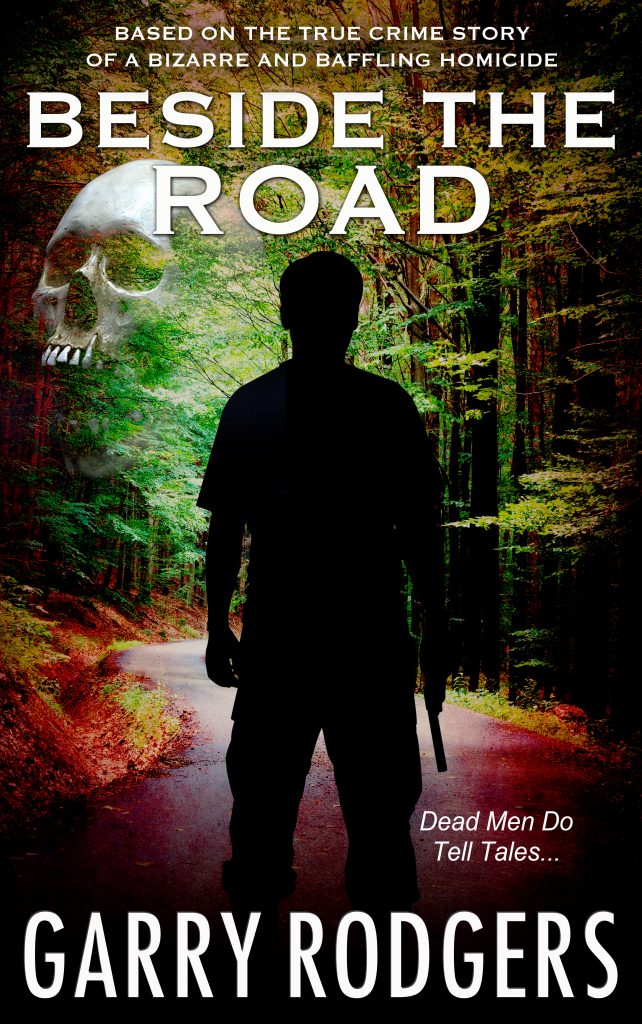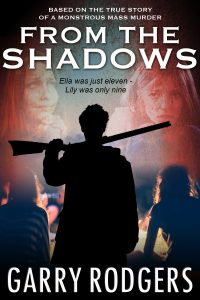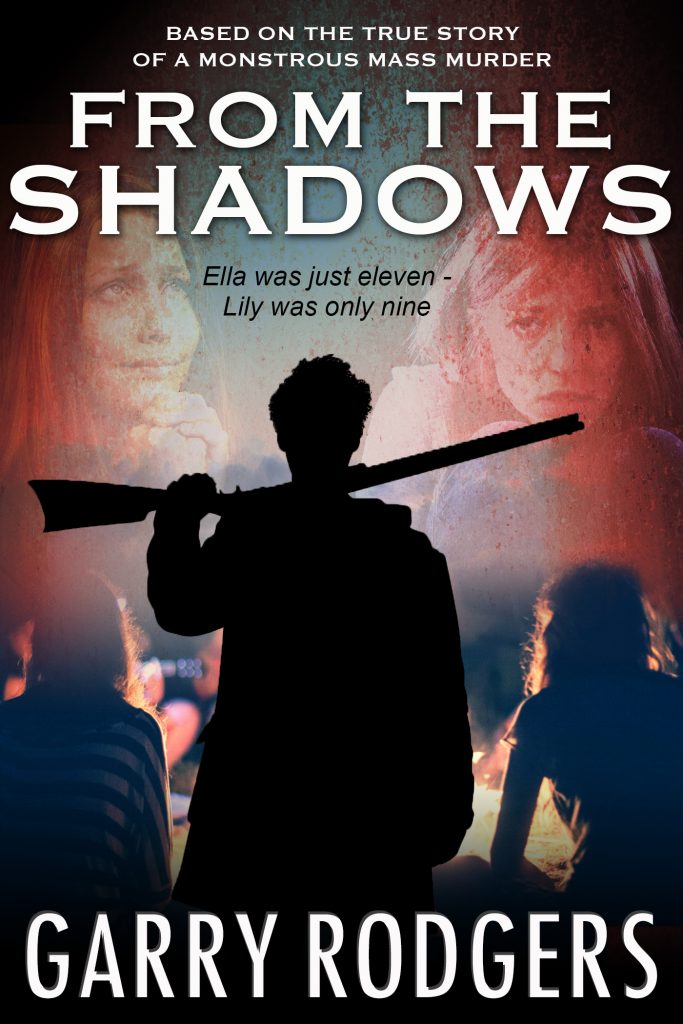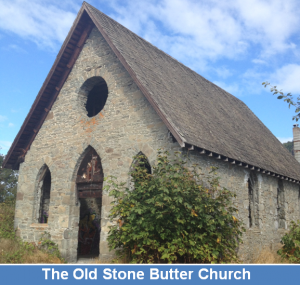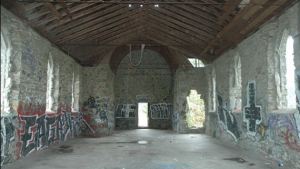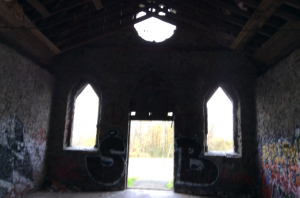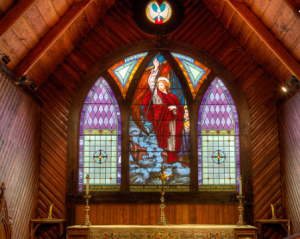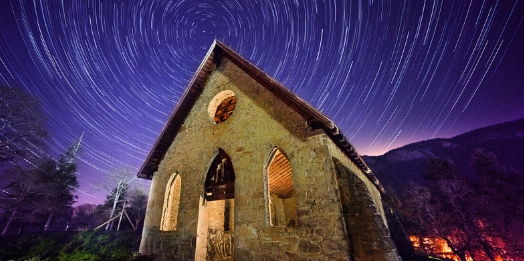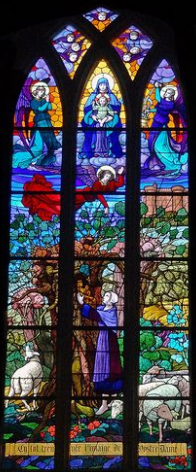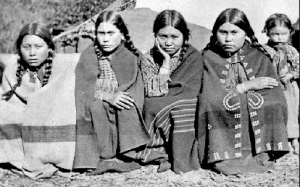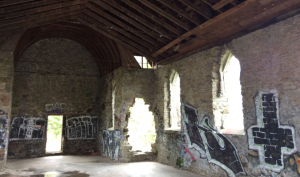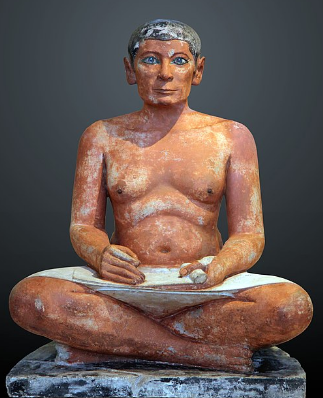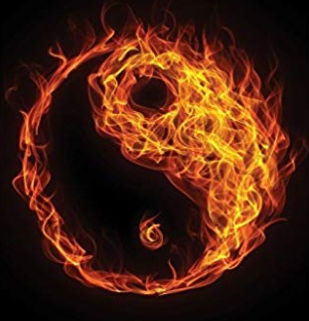Dead Men Do Tell Tales
New Book Release – June 2020 – by Garry Rodgers, DyingWords Digital & Print Media Canada
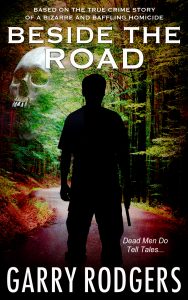 Warning! Beside The Road is based on a true crime story. It’s not embellished or abbreviated. Explicit descriptions of the crime scenes, factual dialogue, real forensic procedures, and actual police investigation, interview and interrogation techniques are portrayed. Some names, times and locations have been changed for privacy concerns and commercial purposes.
Warning! Beside The Road is based on a true crime story. It’s not embellished or abbreviated. Explicit descriptions of the crime scenes, factual dialogue, real forensic procedures, and actual police investigation, interview and interrogation techniques are portrayed. Some names, times and locations have been changed for privacy concerns and commercial purposes.
Prologue
He lay beside the road. He lay beside the road as dawn’s first streaks smeared the eastern sky and the horizon’s weak rays cast frail shadows through early mist. Songbirds introduced the day—while an owl’s screech signed off the night—as he lay on his back in death’s putrid stench… discarded and dumped down a backwoods bank beside the road.
Light spread through the rural woods where a poorly-paved path cut a meandering trail high above him, shielding his corpse from passing view. The sun unhurriedly appeared. It evaporated the overnight dew that formed in early summer, and the temperature began to rise from a tolerable chill. Predictably, the sun climbed the cloudless sky towards another afternoon’s peak of uncomfortable heat.
By nine, the sun angle was right for direct beams to touch his torso through the picket-fence gaps in roadside trees vertically rising from the steeply-sloped bank. A stand of coastal Douglas fir, native to British Columbia’s central Vancouver Island, guarded his body while a canopy of Western red cedars sheltered his cadaver from the direct sear of mid-day heat. The forest floor was a pad of thorns and ferns and moss and sticks and leaves and sticky needles that slowly deteriorated along with him as part of the universal plan.
Hour by hour, as the world turned and time passed, intermittent sunlight radiated him into a zipper-like pattern. Low luminosity left a softening effect on his exposed skin while solar gain from higher scales scorched him with a dryness that turned his trunk zebra-striped in a way few deceased people present. He had a piano-key pattern and a rarity produced by alternating spectrums of electromagnetism.
Day by day, as the Earth evolved and entropy progressed, he became a unique specter—part putrefaction where light hit him low and part mummification where diffusing blows of afternoon rays parched his flesh.
He was clothed. Partly clothed, that is, with his feet in shoes and his privates in shorts. His singlet, or wife-beater muscle shirt, bunched about his upper chest. His head was bare and so were his arms. His hair was stringy strands of brownish sludge that trapped the decomposing flesh and fats flowing from his scalp. And, his left hand reached as if grasping for help while his right helplessly crooked behind his back.
His face was mostly exposed to the bone and his eyes were gone. His cranium sucked in the sunlight and left him with a bare-skull appearance where his teeth—a distinctly different dentition—gave a half-snarl and a half-sneer similar to a pirate’s ghastly flag.
He had a name. He once had a family, and he once kept some friends. He once had a childhood and he laughed and he played and he schooled and he fooled around like anyone passing through their youth and into their adulthood would. But, his life was extinguished and his consciousness had parted ways with his physical entity—his remains left on the slope beside the road to break down.
Now, he was a medical mess with nature’s creatures consuming his corpse. Insects cycled through their growth stages and carried on the continuous loop of evolution. Forest vermin feasted on their share of his disarticulating decay while circling birds apprehensively watched for their chance at a piece of the putrefied pie.
He had a past. He had a past not to be proud of that caused him to be in his present condition—a dead and discarded human body that lay in silent stink beside the road.
Chapter One — Tuesday, July 9th – 1:10 pm
Leaky Lewis sent me a text. body beside the road. prob foul play. can u attend?
I texted Leaky back. What road, ffs? There’s a thousand roads in this town.
Leaky replied. o sorry. nanaimo lakes rd. approx 6 mi west near gogos sawmill.
I typed. Helpful. Are you there now?
He responded. no. im in council meeting. thats why text and not call.
I returned. So who has the scene?
Leaky pecked. uniforms got it. forensics en route. i called coroner. she’ll meet u.
——
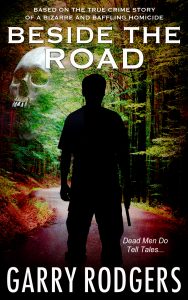 Leaky Lewis was my boss at our Serious Crimes Section. He was junior to me in service, but that was okay. I preferred investigating murders more than stretching budgets and scrambling resources like Leaky had to do. And, this case of the body beside the road stretched and scrambled our budget and resources to the max. We used almost every investigation tool and technique available before we finally solved the most baffling and bizarre homicide file of my long detective career.
Leaky Lewis was my boss at our Serious Crimes Section. He was junior to me in service, but that was okay. I preferred investigating murders more than stretching budgets and scrambling resources like Leaky had to do. And, this case of the body beside the road stretched and scrambled our budget and resources to the max. We used almost every investigation tool and technique available before we finally solved the most baffling and bizarre homicide file of my long detective career.
Leaky’s name was Jim. Jim Lewis. He’s a great guy, but had a serious incontinence problem with post-urinary drip. That’s why the nickname. Leaky couldn’t venture far from the trough without Depends, but he made sure we had everything needed to do our job.
By “our” I mean the seven-person squad tasked with investigating violent persons offenses that happened around the Nanaimo area. We’re located on central Vancouver Island in British Columbia right across from the craziness and congestion of the City of Vancouver. Nanaimo has Canada’s mildest year-round weather. I’d been here on the southwest coast for years and had hit my best-before date. During that time, I’d seen a lot of serious crimes because Nanaimo had an extraordinarily high homicide rate.
Leaky looked after our entire plainclothes unit. Besides the Serious Crimes bunch, he supervised the Commercial Crime unit, Sex Offenses, Forensics, Drug Squad, and one poor prick plagued with frauds and bad plastic. Leaky also oversaw the secret squirrels in our intelligence branch and two notoriously bad-behaved boys on the Street Crew.
——
I pulled up to the crime scene on Nanaimo Lakes Road in my unmarked Explorer. Like Leaky texted, it was just over six miles west of the city limits near a small sawmill run by industrious Slavic immigrants called the Gogo family. There were two police cruisers parked on the right-hand shoulder, the north side, with their red and blues flashing. Two other vehicles sat along the shoulder. One was our forensic unit’s mobile shop. The other belonged to Global TV’s roaming cameraman.
A uniformed cop with a paddle-board stop sign directed traffic around the entourage. She pointed to the left lane and gave me a “get-going” motion. I didn’t recognize her. Likely a new recruit. I hit my grille lights and she startled. Then, she smiled and pointed to the steep bank beside the road.
I parked, got out, and walked toward the marked car at the front of the pack. Already I could smell it. It was that unforgettable stench—somewhere between reeking ammonia in ripe rotten eggs and the putrid aroma of deeply-decayed roadkill. It was the smell one never mistakes.
A senior officer guarded the scene. He’d been with the patrol division for a long time. The patrolman introduced me to the stop-sign gal. I was right, she was a brand-new hire.
“What’s happening?” I was matter-of-fact.
“Body down the bank.” The old harness bull thumbed to the thick stand of Douglas fir trees rooted to the slope and standing tall. Western red cedars loomed overhead. “Been there a while from the look and smell.”
“What do you think?” I stood at the edge. It was loose gravel beside the road’s crumbling pavement. I did not want to slip and take a tumble.
“At first I thought it was a deer.” He scrunched his nose. I could see the young officer kept her distance. “That’s what the guy who reported it thought, too. He was riding his bike up the grade and caught a whiff. So, he stopped and looked over and saw his dead deer wore running shoes.”
“Witness guy still around?” I looked about. The only civilian seemed to be the TV man rolling film.
“No.” The patrolman shook his head. “I got my cadet to take his statement. Gotta start somewhere, right? Then we sent him on his way.”
“Great, thanks.” I paused to look around and take in the scene.
It was bright sunshine and getting uncomfortably warm. The early afternoon sun was south-southwest and high enough to shine over the bank and flood its light on the slope. The site was at the leading edge of a tight left-hand bend, and the road was sharply inclined toward the west. It led to a double-S curve with a cautionary slow advisory sign—not the sort of place to safely pull off.
The traffic was light. A loaded logging truck approached and followed the young officer’s direction. It chugged up the grade and disappeared through the curve. A smaller silver SUV arrived. Instead of bypassing as the officer indicated, the SUV came to a stop behind my Explorer. I saw the new cop frown as the driver put it in park and shut off the engine.
I knew who it was. The door opened and a silver-haired lady with a silver clipboard matching her mane got out. Honey Phelps, our coroner, walked toward me.
“Hi, Honey. Imagine meeting you here.” I smiled. Honey. I love the name. It perfectly suited her. She’d been with the Coroners Service for years, and I’d worked with her at countless death scenes. She was always the consummate professional but with a black humor tinge.
“Is that you?’ Honey whiffed the air like a bear. “Or is that my client?”
“Probably a bit of both.” I chuckled. “I haven’t had a look yet. Waited for you to get here.”
“Looks like Forensics beat me.” She nodded toward the big rig that looked somewhere between a SWAT team’s truck and an indie rock band’s Winnebago.
“Yeah. I think they’re inside suiting up.” I motioned toward the Forensic Identification Section vehicle. “Let’s go have a chat with them.”
Honey looked at my Explorer and then at me. “You alone? No Harry today?”
I grinned. “Nope. I’m batching it. She’s tied up in a court case.” I referred to my usual partner, Sheryl Henderson who we called ‘Harry’ after the Bigfoot in the movie Harry and the Hendersons. Sheryl was a large lady with large hair and an even larger personality.
Honey and I walked up to the Forensics vehicle just as Sergeant Cheryl Hunter stepped down. Her understudy, Matt Halfyard, stayed inside. We called him Eighteen Inches.
Cheryl was dressed in her bunny suit. It’s the white Tyvek coveralls that CSI people constantly wear. I’m sure she slept in that thing.
 “What do you think?” I asked Cheryl much the same thing I’d asked the senior patrolman. It was usually a pretty good opener.
“What do you think?” I asked Cheryl much the same thing I’d asked the senior patrolman. It was usually a pretty good opener.
“Not sure yet.” Cheryl had her digital Canon ready. Matt was loading a video camera. The first thing Forensics always do is film the scene before they enter it. That step was non-negotiable, and the guarding officers made sure no one went near the body before Forensics began their painstaking thorough task of recording the overall scene. Examining the body beside the road would follow.
“I’m not sure what to think.” Cheryl was always careful with opinions and cautious with conclusions. She was like all forensic examiners. They work with facts. Not fables. It was the nature of the beast.
“I haven’t been down to the body yet.” Cheryl looked to her left and over the bank. “It’s about twenty-five feet downslope and looks like it’s hung up against tree trunks. I have no idea if he… it looks like a he from the size and style of running shoes… that’s all I can really make out from here… if he was hit by a vehicle and sent flying over the bank or if he was driven out here and dumped.”
I looked around. The TV camera guy looked back through his viewfinder. “Doesn’t look like a suicide type of scene.”
Cheryl and Honey agreed. We’d all seen a lot of suicide scenes and this one didn’t fit. My gut feeling said dumpsite.
“Let’s just take this step-by-step till we see what we’ve got.” Cheryl was the voice of reason. “One thing’s for sure. This isn’t a recent scene. From what I can see above the shoes is bare-bones with putrefied flesh partly attached.”
“Been here a while, then.” Honey observed.
“Yeah.” Cheryl looked up at the sun. “But it doesn’t take long in this weather.”
“We’ll figure it out.” Honey smiled. “Let’s have a better look at who’s down there beside the road.”
* * *
Beside The Road — Book 4 in the Based-On-True-Crime Series by Garry Rodgers is just released — June 2020 — and now downloadable from these leading EBook retailers:




